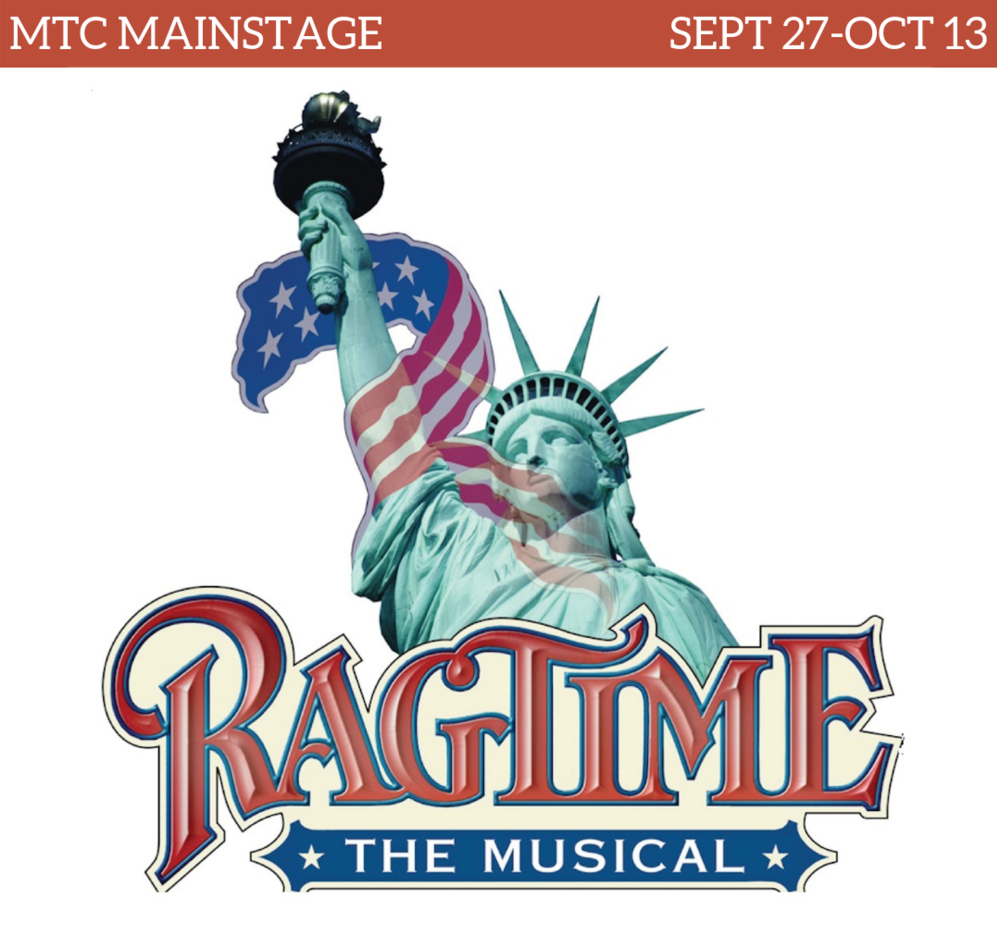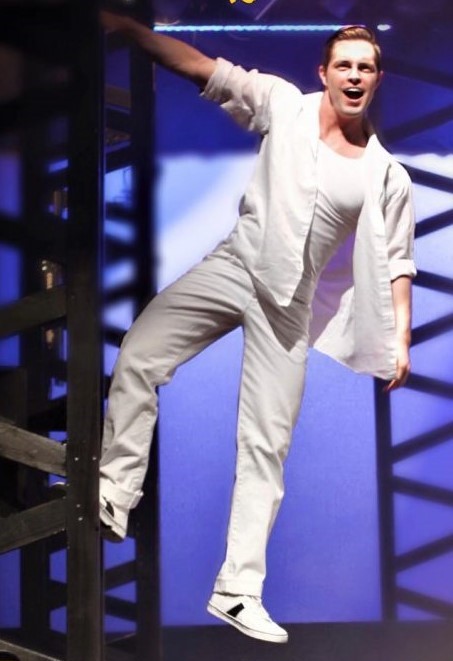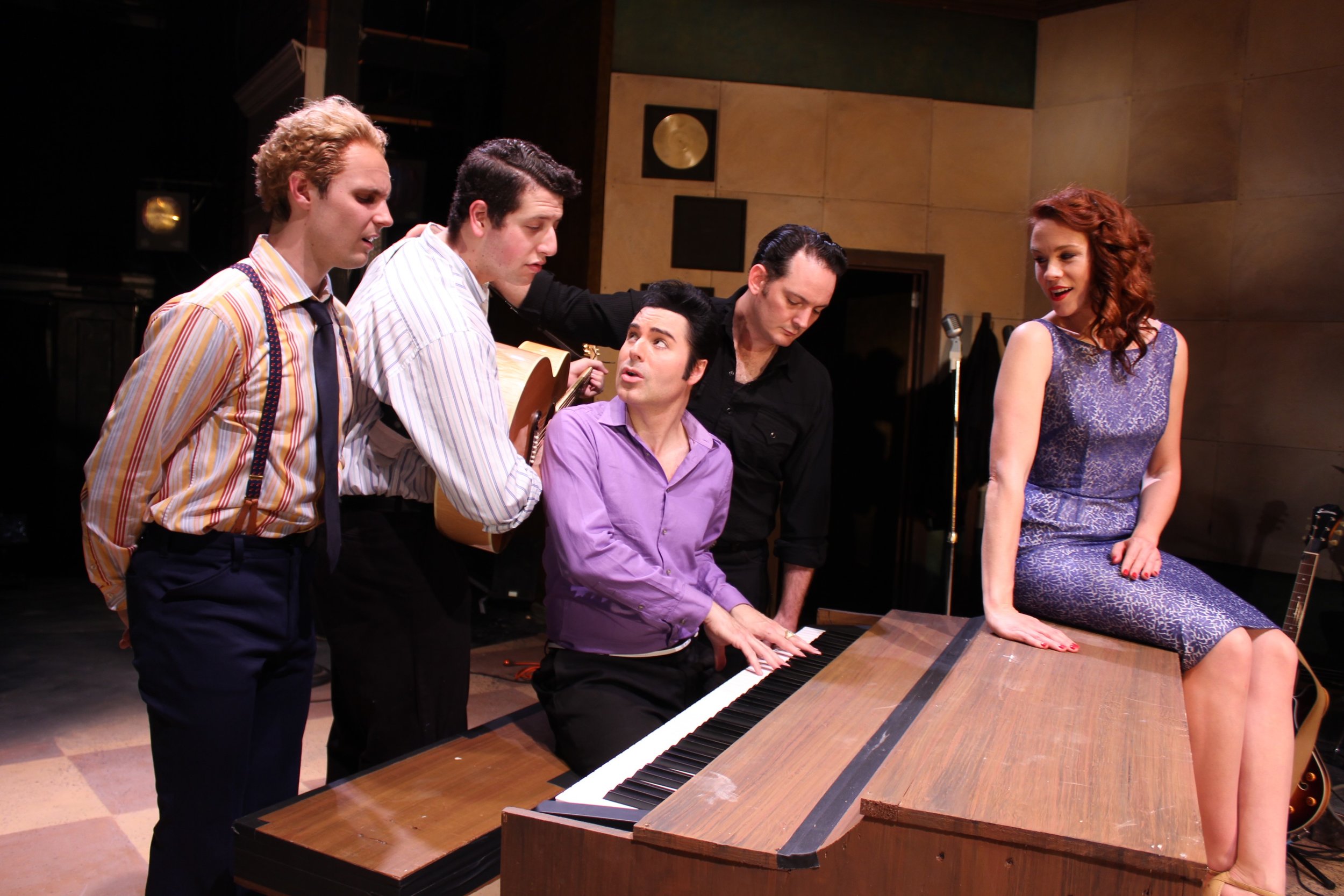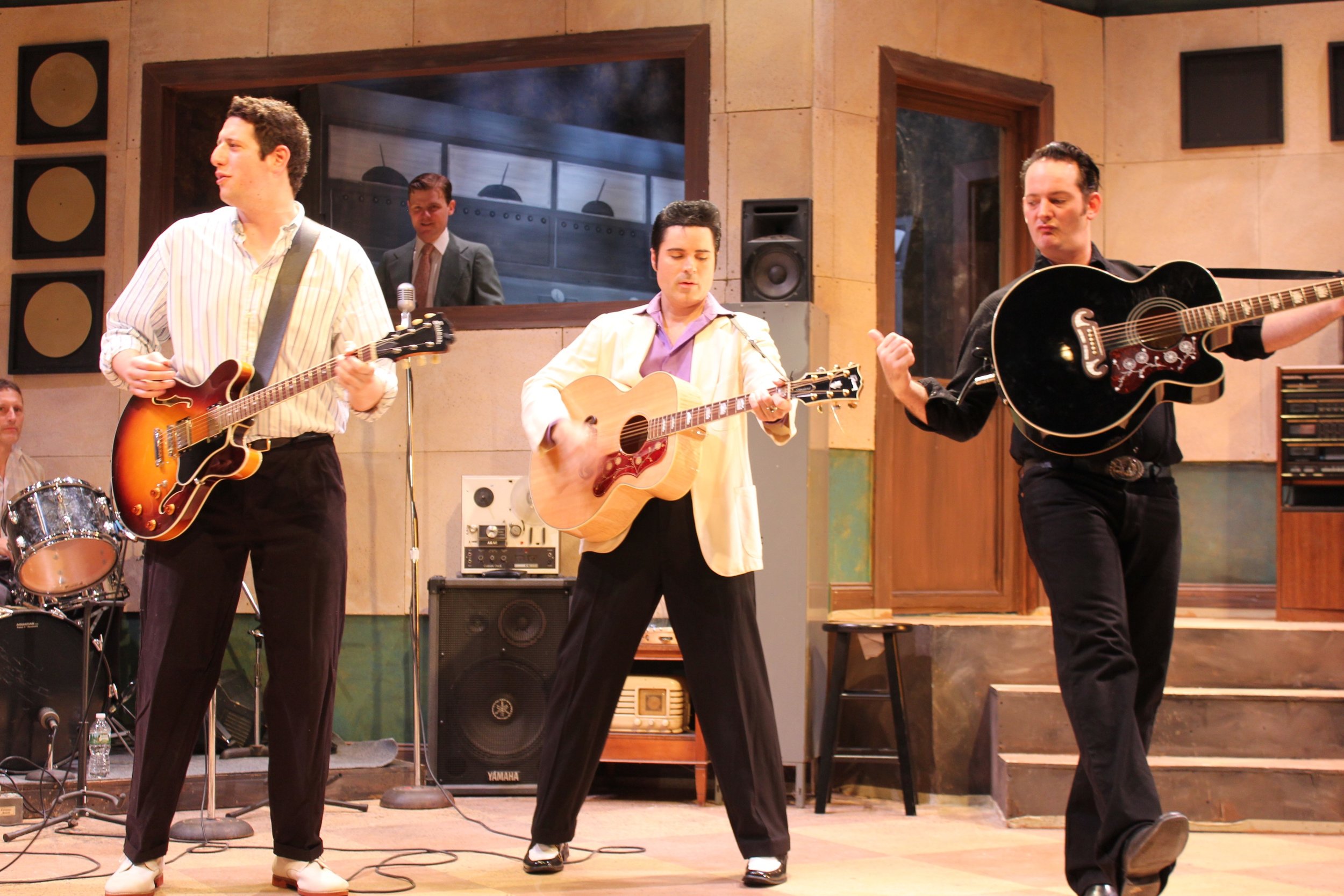Preview: Fall Theater Season, 2019
Labor Day has come and gone, and “back to school” weather in Connecticut actually felt like early autumn, for a change. And my email inbox’s increase of press releases indicates that the theater season of fall 2019 is tuning up. The “twenty-teens” are coming swiftly to a close, while the next presidential election is barely more than a year away as we start to wonder who is at “20/20” for 2020.
Here is a glance at the upcoming shows on the Connecticut theater scene (touring Broadway shows exempted) for the next four months between now and the beginning of that oddly doubled year—the last one was 1919!
Yale Cabaret, the black box in a basement on Yale campus where theater leaders of tomorrow make extracurricular theater as students at the Yale School of Drama, begins its 52nd season this week (see Lucy Gellman’s coverage at Arts Paper ); the incoming team are Artistic Directors Zachry J. Bailey, a third-year in Stage Management, Brandon Burton, a third-year in Acting, and Alex Vermilion, a third-year in Dramaturgy & Dramatic Criticism, together with Managing Director Jaime Totti, a fourth-year joint candidate for an MFA in Theater Management at the School of Drama and an MBA at the School of Management. The 2019-20 season kicks off, September 12-14, with We Are Proud to Present a Presentation About the Herero of Namibia, Formerly Known as South West Africa, from the German Südwestafrika, Between the Years 1884-1915 by Pulitzer Prize-winner Jackie Sibblies Drury, a lecturer in playwriting at YSD, directed by Christopher Betts (Directing, ’21); the play dramatizes the difficulties of authentic representation in a tale of genocide by staging the play’s rehearsal; next, September 19-21, is Waste \\ Land: Climate Change Theatre Action 2019, an anthology mixing short plays by international playwrights and pieces written by students, the show is curated and directed by members of Beyond Borders, a new affinity group for international students at YSD; then, October 3-5, the Cabaret returns with benjisun presents bodyssey, a movement-and-puppetry piece created by Benjamin Benne (Playwriting ’21) and Jisun Kim (Dramaturgy & Dramatic Criticism ’21); first seen in the TBD festival of rough drafts last season, the expanded version further explores themes of the human body and the world it inhabits (review). For a preview of the shows from October 24 through December, go here.
Goodspeed, the venerable musical theater on the Connecticut River in East Haddam, has had a very successful 2019 season so far: its revival of the classic The Music Man won the CT Critics Circle Award for Best Musical; its new musical Because of Winn Dixie enjoyed an extended run, and now it brings the season to a close with Billy Elliott, Book & Lyrics by Lee Hall, Music by Elton John; an audience choice, the original Broadway show won 10 Tonys, adapting a popular film about a young boy in a tough North England mining town who dreams of becoming a dancer. September 13-November 24 (review).
Originally the first self-supporting summer theater in the country, Ivoryton Playhouse has been running versatile full seasons since 2006 under Executive Director Jacqueline Hubbard; the last two shows of the 2019 season, which began in March, are Sheer Madness by Paul Portner, a lively—and long-running—comedy-mystery in which audience members spot clues, question suspects, and solve the case, complete with improvised topical humor from the cast, September 18-October 6, and Woody Sez – The Life and Music of Woody Guthrie, an involving celebration of the songs of Woody Guthrie, the anti-fascist folk-bard of Depression-era America, devised by David M. Luken, who plays Woody, with Nick Corley, Darcie Deauville, Helen J. Russell, and Andy Tierstein, October 23-November 10.
Like my own reviews of New Haven theater, Playhouse on Park in West Hartford, founded in 2009 by Co-Artistic Directors Sean Harris and Darlene Zoller and Executive Director Tracy Flater, is entering its second decade; the spacious stage in the Playhouse thrust space, which has housed some memorable productions such as The Diary of Anne Frank (2017) and The Scottsboro Boys (2019), will present the “inspired madness” of Dan Goggin’s Nunsense, a spirited musical in which singing nuns raise fun and funds to bury their deceased sisters, September 18-October 13 (review), followed by Barbara Lebow’s A Shayna Maidel; Dawn Loveland Navarro directs the tale of a patriarch and his two daughters—as children, one escaped the Holocaust with him, the other had to survive it—meeting again after many years, an exploration of “family, faith and forgiveness,” October 30-November 17 (review).
Following the departure of its celebrated Artistic Director, Darko Tresnjak, Hartford Stage opens its 56th season, the exciting first season for new Artistic Director Melia Benussen and new Managing Director Cynthia Rider; first up is Quixote Nuevo by Octavio Solis, a contemporary reimagining of Cervantes’ immortal Don Quixote, now set in a Texas border town, directed by KJ Sanchez; the production is in association with Huntington Theatre Company and Alley Theatre, September 19-October 13 (review); the next two shows will be directed by Rachel Alderman, Artistic Associate (and a founding member of New Haven’s innovative Broken Umbrella Theatre): Molly Smith Metzler’s Cry It Out, a recent comedy about four parents negotiating “the power of female friendship, the dilemma of going back to work after being home with a newborn, and the effect social class has on parenthood in America,” October 24-November 17 (review), and the fun, elegant, and ghostly A Christmas Carol, the traditional holiday favorite of spiritual redemption from Charles Dickens by way of Michael Wilson’s inventive adaptation, November 29-December 28.
Originally a dance hall built in the 1920s, later—in the 1970s—a skating rink, and, since the 1990s, a theater, Waterbury’s Seven Angels Theatre in Hamilton Park, boasts a good sound system, great for concert-style shows such as Million Dollar Quartet (2017) and The Who’s Tommy (2018); the 2019-20 Mainstage season opens with Honky Tonk Laundry, by Roger Bean Take, a tuneful tale of two gals running a laundromat, featuring the music of a slew of female Country Music legends, such as Dolly Parton, Patsy Cline, Carrie Underwood, Trisha Yearwood, and Reba McEntire, September 26-October 20; then, November 7-December 1, it’s Matthew Lopez’s hilarious, crowd-pleasing tale of how a straight married guy—a struggling Elvis impersonator—must learn to walk the walk of a stylish drag queen in The Legend of Georgia McBride.
Founded in 1987 as a small, black box equity theater together with a school of the performing arts, Music Theater of Connecticut in Norwalk, just past the Westport border, follows the gripping productions—Jekyll & Hyde: The Musical, Cat on a Hot Tin Roof, and Cabaret—of its strong 2018-19 season with the ambitious musical adapted from E. L. Doctorow’s historical pastiche, Ragtime, with Book by Terence McNally, Lyrics by Lynn Ahern, and Music by Stephen Flaherty, a story of multicultural America, involving African Americans in Harlem, white upper-class suburbanites in New Rochelle, and East European Jewish immigrants, September 27-October 13 (review); then, November 8-24, it’s Robert Harling’s Steel Magnolias, the story of small-town life in Louisiana as lived and learned by a group of women for whom the local beauty salon is a kind of clubhouse beyond the purview of the fellas (review).
At Westport Country Playhouse, Mark Lamos is in his second decade as Artistic Director, continuing to produce an able mix of sumptuously mounted classics, such as Romeo and Juliet (2017) and Camelot (2016), notable new work like Ayad Akhtar’s The Invisible Hand (2016) and Branden Jacobs-Jenkins’ Appropriate (2017), and rousing crowd-pleasers like Lin-Manuel Miranda’s In the Heights, which began the 2019 season in April; the season has two more shows: Lamos directs Mlima’s Tale by two-time Pulitzer-winning playwright Lynn Nottage, a fable about a Kenyan elephant, Mlima, a species facing extinction in a world of capitalist greed and economic desperation, October 1-19 (review); and Brendan Pelsue’s new translation and adaptation of Molière’s dark comedy Don Juan about the legendary libertine facing the consequences of his faithless lifestyle, directed by David Kennedy, November 5-23 (review).
ACT (A Contemporary Theatre) of Connecticut opened the doors of its own theater in Ridgefield in June 2018; the stylish, open stage, with amphitheater seating, has so far only five theatrical productions to its credit as founders Katie Diamond, Executive Director, Daniel C. Levine, Artistic Director, and Bryan Perri, Resident Music Supervisor, continue their mission to bring Equity, Broadway-caliber productions to CT’s northwest. The second season opens with Alan Menken and Harold Ashman’s ever-popular and entertaining The Little Shop of Horrors, a macabre musical comedy about a lovable schlemiel, his demanding man-eating pet plant, Audrey II, and the girl he loves, October 3-November 3 (review).
In the northeast part of the state, The Connecticut Repertory Theater is the production component of the Department of Dramatic Arts at the University of Connecticut in Storrs; CRT productions are directed, designed by, and cast with visiting professional artists, mixing Equity actors, faculty members, and UConn’s most advanced theater students. The 2019-20 season of six shows leads off, in the Harriet S. Jorgensen Theater, with Chekhov’s masterpiece The Cherry Orchard, a more apt choice for our times than the playwright’s more oft-produced The Seagull; the production, adapted by Jean-Claude van Itallie and directed by John Miller-Stephany, features Mark Light-Orr as Gayev and Caralyn Kozlowski as Ranevskaya, October 3-13; later in the month, in the Studio Theatre, is Sarah DeLappe’s spirited The Wolves, directed by Julie Foh, in which a girls’ high school soccer team copes with the tensions of coming of age, October 24-November 3; Shakespeare in Love, a stage adaptation of the Oscar-winning romantic comedy film by Tom Stoppard, Lee Hall and Marc Norman, about the young Shakespeare’s writer’s block and inspiring tryst with Viola, a titled woman with an overweening love of theater, plays the Harriet S. Jorgensen theater November 21-December 8, directed by Vincent Tycer, its Equity cast still to be determined.
In New Haven, James Bundy has been the Artistic Director of Yale Repertory Theatre, the theater in residence for the Yale School of Drama, and the Dean of Yale School of Drama since 2002, fostering theatrical talent and showcasing top professionals; the first show of the 2019-20 season is the World Premiere of Girls, the always challenging Branden Jacobs-Jenkins’ modern adaptation of Euripides’ The Bacchae, a popular go-to classic of our moment, this time with “a killer DJ, bumping dance music, and live-streaming video,” October 4-26 (review), directed by Lileana Blain-Cruz, an inspiring Directing alum of YSD (2012) who teamed with Jacobs-Jenkins for War at Yale Rep in 2014; The Plot, by the always rewarding Will Eno, has its World Premiere November 9-December 21 (review), directed by Oliver Butler, who won the OBIE for directing Eno’s Open House at the Signature Theatre; Eno’s previous play at Yale Rep was The Realistic Joneses (2012).
The first two thesis productions at the Yale School of Drama, in which third-year Directing students work with a cast and technical team comprised of—generally—current YSD students, will run in the closing months of 2019 as well: Kat Yen directs Anne Washburn’s post-apocalyptic Mr. Burns, a post-electric play, in which collective memories of shows on The Simpsons become the basis of an epic myth, October 26-November 1 (preview) (review); and, December 14-20, Danilo Gambini, the Co-Artistic Director of the 2019 Yale Summer Cabaret season, directs Fun Home (preview) (review); Lisa Kron and Jeanine Tesori’s musical adaptation of Alison Bechdel’s graphic-novel memoir of her early life, her coming out, and her fraught relationship with her closeted gay father won the Tony Award for Best Musical of 2015.
At New Haven’s Long Wharf Theatre, last season was still transitioning after the ousting of longtime Artistic Director Gordon Edelstein in 2018; now the implementation of the vision of new Artistic Director Jacob G. Padrón is underway, “Grounded in the past, leaping into the future,” though the season that will be entirely his own won’t arrive until 2021-22 (read Frank Rizzo’s talk with Padrón at Newhavenbiz). The 2019-20 season opens with the World Premiere of Ricardo Pérez González’s On the Grounds of Belonging, October 9-November 3 (review); directed by David Mendizábal, the story tells of a forbidden love between a white man and a black man in 1950s’ Jim Crow Texas; oft-produced actor-playwright Kate Hamill has become a veritable industry of quirky, third-wave feminist adaptations of the kinds of nineteenth-century classics formerly the stuff of Masterpiece Theater productions; her third effort, and second Austen novel, Pride and Prejudice fills Long Wharf’s second slot, November 27-December 22 (review).
In downtown Hartford at the historic City Arts building on Pearl Street, TheaterWorks has been producing theater since 1985; the 2019-20 season will open in the newly renovated but still very intimate theater space, after staging several of last season’s shows at the Wadsworth Atheneum’s auditorium; the opener is American Son, Christopher Demos-Brown’s topical drama, on Broadway last season, about a mixed race couple’s grim night of truth when their son gets stopped by police, October 18-November 23 (review); the last show of 2019 will be “Hartford’s twisted holiday tradition,” Rob Ruggerio’s Christmas on the Rocks in which a battery of playwrights devise futures for the figures many of us spent far too many Christmases with; so here’s to all those for whom “the holidays” were as much—or more—about repeat-viewing of “holiday classics” as about spending time with loved ones, December 1-29.
I’ll be reviewing many of these shows, so stop back and follow links to the reviews as they come in, and make the most of the rest of 2019 . . .











